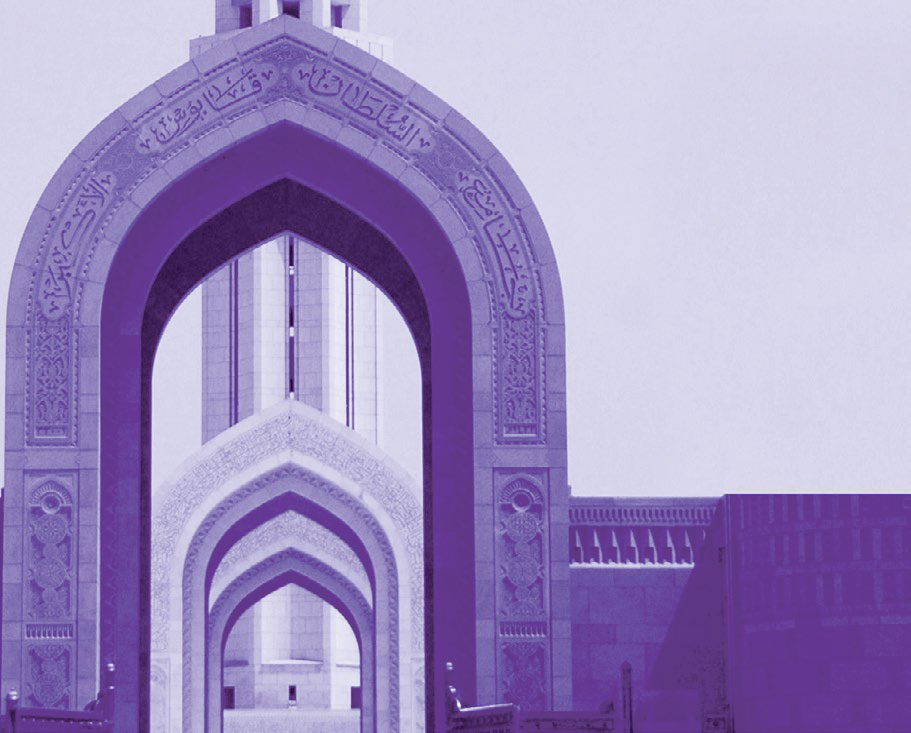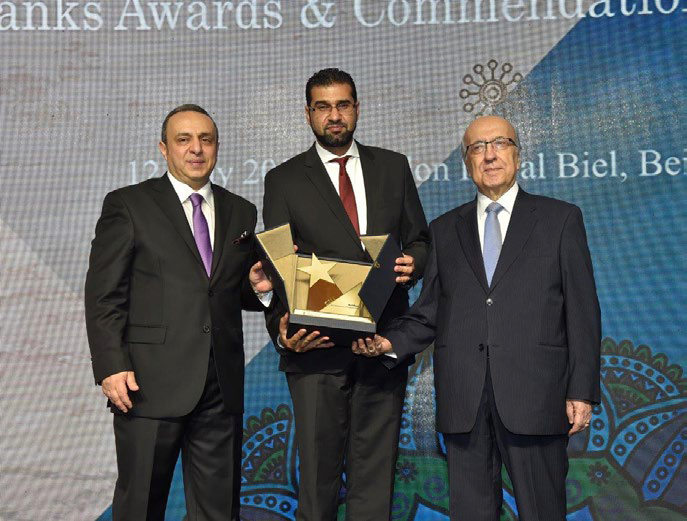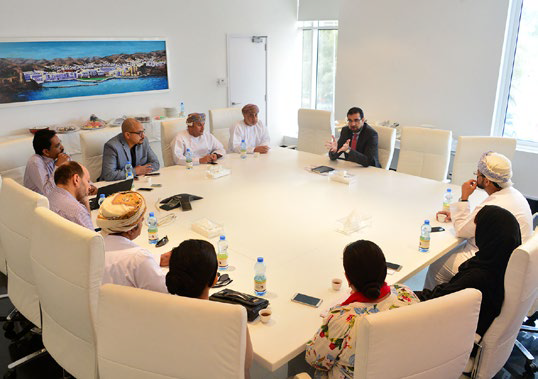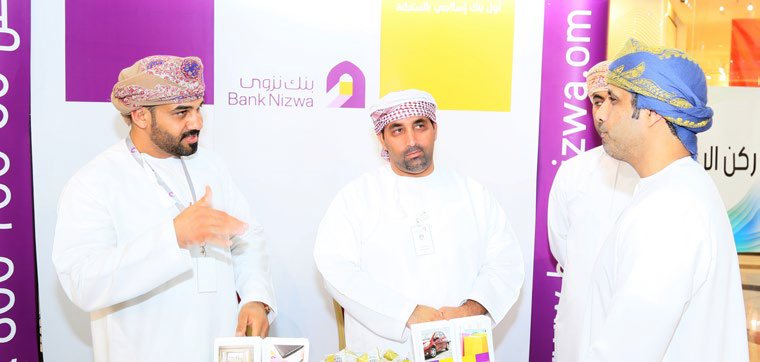Khalid Al Kayed Ceo, Bank Nizwa

Harmonisation with the principles of Shari’acompliance has emerged as an important topic for Islamic finance practitioners and one engrained within our bank at every level.
Many industry observers opine that Islamic banking has deviated from its paradigm version to become just a Shari’a-compliant version of conventional banking. To what extend do you believe this criticism to be valid? What should Islamic banks do to dispel this impression?
One key challenge from the outset of the modern Islamic financial sector has been a lack of uniformity regarding the principles applied, as well as consistency in their practice. This is a result of differences of opinion among schools of thought, which has led to different circumstances from one country to another. For that reason, harmonisation with the principles of Shari’a compliance has emerged as an important topic for Islamic finance practitioners and one engrained within our bank at every level.
It is true that disagreements over what is or is not Shari’a-compliant can make it difficult for financial intermediaries to structure cross-border transactions or develop new products with global appeal. But, I believe there is an urgent need for a common understanding of acceptable rules and standards that will enable Islamic finance to become truly global in its reach.
Stakeholders must bear in mind that the trust and confidence of our customers and investors is of the utmost importance. Which is why, at Bank Nizwa, we have maintained a strong dedication to the most stringent Shari’a- compliant regulatory frameworks and ensured all products are developed with the expertise and approval of our Shari’a Supervisory Board. Islamic financial institutions must ensure they adhere to the best practices of corporate governance and add an extra layer of supervision in the form of supervisory boards as we have done.
Our Shari’a Supervisory Board has both supervisory and consultative functions and is comprised of high-caliber scholars from multiple schools of thought. This provides us with an immense pool of knowledge to draw from when shaping our strategy and developing new solutions, in addition to embedding the values of Shari’a within every level of our operations.
Islamic banking experts are all praise for the Sultanate of Oman when it comes to regulation and governance of Islamic banks. It is indeed a tremendous achievement for a new comer. What role has Bank Nizwa played in helping the regulator to devise such a comprehensive regulatory and governance system for Islamic banks in Oman?
Oman’s strong Islamic Banking Regulatory Framework (IBRF) was developed by the Central Bank of Oman (CBO) and has been the basis for Shari’a-compliant finance enjoying such rapid growth in the Sultanate. As a result of the IBRF, Islamic banks in Oman have had sound laws and regulations to follow from the very beginning, which has proven vitally important in consistently maintaining high regulatory standards and market-wide resilience in today’s increasingly dynamic economy. Due to these initiatives set out by the CBO, Islamic banks in Oman are more transparent, safer and better governed by Shari’a and applicable regulatory standards. The sector continues to be overseen by the CBO’s High Shari’a Supervisory Authority, which meets regularly to discuss issues related to Islamic banking.

As Oman’s first Islamic bank, our role has been to raise awareness on the benefits of Shari’a- compliant banking and work in tandem with all stakeholders to support the growth of the Sultanate’s economy. This objective has been carried out through a number of important awareness campaigns, such as the Islamic Finance Roadshow, and the tailored solutions we provide to help our customers lead financially secure lifestyles.
Since we started in 2013, one other bank and six Islamic window operations have followed. Together, with the full support of the CBO, we have nurtured our industry to reach a total market share of 11.6% of all bank assets in the Sultanate as of June 2017. Initially, experts projected we would only reach double digits before 2018. The fact that we were able to achieve such remarkable growth over a year ahead of time reflects the overall success of this sector and how well it continues to be received.
You are the second CEO of Bank Nizwa. What legacy did you inherit from your predecessor and what are your plans for further growth and development of the bank in Oman?
The growth we have enjoyed since our inception has been nothing short of remarkable, crossing one milestone after another. We were able to achieve breakeven point just three years after launch, win numerous awards, and fulfill our promise of spearheading the development of this burgeoning industry in the Sultanate.
Since then, we have continued to grow from strength to strength, using our solid foundation as a catalyst to further cement our role as Oman’s leader in Islamic banking. This year alone, we achieved the highest growth rate in Oman’s banking industry reaching 200% after tax during the first half of 2017.
The end of 2017 marks the first full year since the implementation of our Strategy 2020 framework, which focuses on five pillars of development that represents financial performance, technological advancement, market share, team and culture, in addition to progressive organisation. All these pillars are integrated together to deliver a world- class Shari’a-compliant banking experience to customers, investors and shareholders.
Q4: Do you have plans to expand beyond Oman shores?
At the present, we are focusing on consolidating our leadership position within the Sultanate’s Islamic financial sector. We are operating in a market that have yet to achieve its full potential, with growing awareness in Islamic finance contributing to substantial increase in the numbers of customers attracted by what we offer.
There is an urgent need for a common understanding of acceptable rules and standards that will enable Islamic finance to become truly global in its reach

finance and offering insight into the future of Bank Nizwa and Islamic banks in Oman`
Q5: On a personal level, what kind of leadership style do you adhere to? Are you considered an authoritarian leader by your senior management?
I am completely against heavy-handed, totalitarian and rigid styles of leadership as not only are they entirely counter-productive, but I believe they lead to low levels of morale and performance. True management is measured by the number of ways you can connect and entrust your team to support you in making crucial decisions. The key is trust and for that reason, I do my utmost to maintain a participative work environment that consistently empowers the team. In fact, this has served Bank Nizwa well from the very beginning, with every department supporting one another. As a result, we have managed to continue our growth trajectory and exceed expectations year on year.
Q6: You have achieved impressive success to become CEO of the first-ever Islamic bank in Oman. What factors contributed to such a huge success so early in your career?
I have been on the Management level roles for more than 10 years so I am not in the early in my career. It is actually a right time in the career. There are various success factors that you must know in order to start moving forward in life which includes education, skills, consistency, discipline, character, hard work and attitude. Each one of these success factors has been proven to be critical to the achievement of the best life possible for any given person. By systematically implementing one or more of these success factors into your life, you can put your foot on the accelerator of your own career and achieve the best life for yourself,

at Muscat Grand Mall
during a road show
7: Our readers would like to know about a typical day in the life of Khalid Al Kayed. Please share your daily routine.
I wake up early in the morning and am always an early bird at work. I love feeling good and healthy and having something on my to-do list already checked off by the time I’m in the office. Starting every day with a strong, positive thought is the best way to kickoff each day. I believe that a positive mindset is key to overcoming all obstacles, and I radiate this to my team.
Sometimes the day’s schedule goes like a roller coaster ride and despite early wakeup; I tend to burn the midnight oil to manage my to-do list. I never disconnect myself with work and try to respond to each and every email received. At the office I have an open-door policy and I’m straightforward with those I am advising. I have high expectations, but I also believe in rewarding hard work and positive results.
At home, family time is a priority and I believe that one should maintain a discipline in life by keeping balance in professional and personal life. At the same time, maintaining good health is also important.
I always try to make most of my time and ensure that I get time to read books, articles, latest events etc., especially on weekends.
Q8: Coming back to Bank Nizwa, where would you like to see it in next five years?
As previously mentioned, we have developed a five-year vision, which outlines where we aim to be and how we want to get there clearly mapped out. Our Strategy 2020, is a reaffirmation of our commitment to teamwork, innovation and service excellence. This roadmap clearly outlines our objectives of diversifying our revenue streams, how to best maintain optimal profit margins, and future products and services to be developed and tailored to the needs of the changing economic climates of today and beyond.
This strategy was designed to leverage on our growth and position us as a pioneering Islamic financial institution, while achieving sustainable success and contributing to the national economy. We are at the forefront of the Islamic finance industry in Oman, and successful implementation of this strategy will ensure we continue diversifying Shari’a-compliant tools, systems and processes to achieve a sustainable success.
Q.9 Who has been your greatest mentor in banking and finance?
One mentor cannot offer you a well-rounded view of banking and finance and offer advice on how you should operate in it. You should seek conflicting advice from a number of sources and then analyse it to make the most informed decision on your own. I have been fortunate to have a number of top leaders and professionals as my mentors. And as I have moved into leadership roles, I have tried to emulate the skills I have admired in them, including excellent communication, integrity, and honesty and being a great listener.
Overall, though, my leadership style is built on simply being myself. I have learned that building a good career isn’t just about your professional acumen; it’s about integrity and being honest with yourself and others.
I have learned that building a good career isn’t just about your professional acumen; it’s about integrity and being honest with yourself and others
Q10: What is, in your view, the greatest challenge faced by Islamic banks in Oman?
Given its ability to offer a highly effective and flexible alternative to conventional banking, Islamic finance has enjoyed considerable growth over the past few years. This is true not just in Oman, but all over the world, with countries as diverse as the UK, Singapore, and Brazil opening windows of opportunity to our industry. However, low-levels of customer awareness continue to be the single largest challenge we face as it limits our growth and market share. This has the knock-on effect of limiting the availability of professionals trained in Islamic finance as many young professionals lack understanding of our core principles and solutions.
Q11: Where lays the opportunity?
I am a firm believer that the opportunity lies in the challenge, with our industry providing concrete evidence to support that view. While lack of awareness has limited growth, raising awareness has directly correlated with a rise in customers, assets, market share, and deposits.
Over the years, we have continuously taken the initiative to unite industry experts in the Sultanate to drawd up plans for the sustained growth of Islamic banking in Oman. We have promoted knowledge exchange among industry stakeholders and identified solutions to common challenges faced by practitioners in order to continue nurturing our growth.
Today, Islamic finance in Oman is in a very strong, solid position and we anticipate that this will only grow as more communities, and businesses are exposed to the benefits our industry. On that front, we continue to conduct roadshows that travel to higher educational institutions, and high-footfall locations, and invite major institutions from abroad to share our knowledge of Islamic finance. Recently, we have taken these efforts to the next level, uniting with Takaful Oman and Al Kawthur Fund, adding their expertise in Islamic insurance and investment to the comprehensive and increasingly popular Islamic finance agenda in Oman.
Q12: At the recently held Global Islamic Finance Awards (GIFA) in Astana, Bank Nizwa’s pioneering role in Islamic banking in Oman was recognized. This is a remarkable achievement, as Bank Nizwa has become an iconic brand world-wide. What should you attribute this success to?
In the years since our establishment, we have grown from strength to strength thanks to the continuous introduction of tailored solutions, increased awareness among the general public, and our dedication to staying true to the values of Islamic banking.
Our portfolio of products and services is divided into Personal Banking, Corporate & Commercial Banking and Financial Markets & Investments with customers being served through multiple channels including branches, direct sales, call center, ATM/CCDMs, mobile application, and internet banking. We continue to innovate, offering new ways for financially secure lifestyles to be enjoyed.
Q13: Would you like to share your views on the global Islamic financial services industry? Is it developing in the right direction?
While recent figures have shown that the industry’s growth might slow down in 2018, I think it is worth remembering that the vast majority of Islamic banking assets are concentrated in major oil producing countries that are currently suffering from a glut in the crude oil market. The GCC, Malaysia, and Iran account for 80% of the industry’s total assets, estimated to be around US$2.1 trillion at the end of 2016.
While Malaysia is a diversified, manufacturing powerhouse; economies within the Gulf are currently undergoing a major shift that is expected to boost non-oil sector revenue. The significant drop in the price of oil, reduction in market growth, and spending cuts have had a significant impact on limiting the growth of banks throughout the region. Islamic banking being no exception.
With that said, we are definitely enjoying a period of development due to growing interest worldwide in the alternative solutions we offer.
For an industry still in its infancy in most of the world, our rapid growth has been nothing short of remarkable.
Q14: Some critics suggest that Islamic banking has failed to incorporate social responsibility in its core business. In your views, is this a valid criticism?
On the contrary, while I cannot speak for other institutions, at Bank Nizwa, CSR and community engagement have always been major component of who we are as Oman’s leading Islamic bank. Our strong commitment to empowering local communities is in fact directly inspired by the principles of Shari’a, which maintains the welfare of society as a key pillar. Our efforts initially centered on embedding social and economic empowerment into the very fabric of our organization, subsequently resulting in us emerging to local communities throughout the Sultanate with volunteers from our extended family working to improve lives, one initiative at a time.
These efforts encompassed by our Masoliyati volunteering program, which was founded in 2014. Through this initiative, Bank Nizwa staff has participated in dozens of high-impact projects that champion worthy causes. To date, Masoliyati has successfully organized 6 blood donation drives, Iftar Sa’em programs every Ramadan, and countless coastal beach clean-ups that have helped preserve Oman’s picturesque coastline. As a direct result of these initiatives, our dedication to CSR was recognized this year with ‘Excellence in CSR in Islamic Finance’ award at the regional Corporate Social Responsibility in Islamic Finance Conference and Awards ceremony.
Q15: Any message you would like to give to young people aspiring leaders in Islamic banking and finance?
My advice would be to seek knowledge, study and learn as much as you can, embrace innovation, and remain open-minded to new opportunities. Never underestimate the impact an Islamic financial instrument can have on the lives of a customer nor the value of remaining true to the founding values of our industry. That, in a nutshell, is the key to success in our ever-growing sector.



